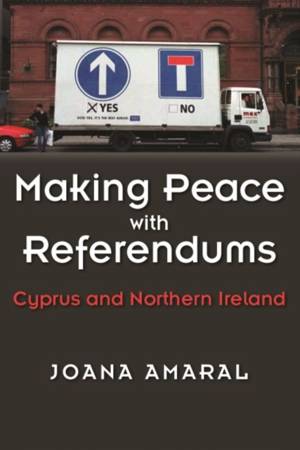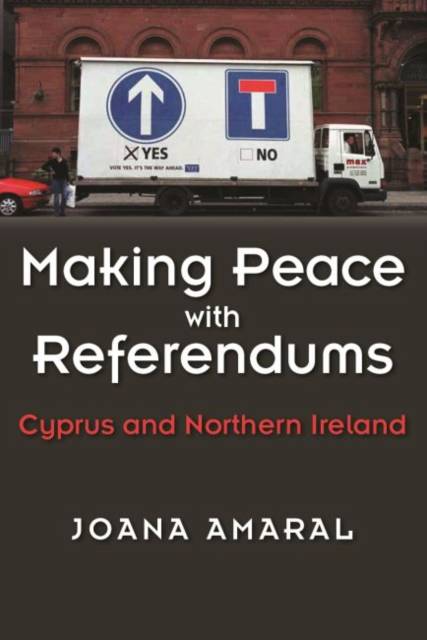
- Afhalen na 1 uur in een winkel met voorraad
- Gratis thuislevering in België vanaf € 30
- Ruim aanbod met 7 miljoen producten
- Afhalen na 1 uur in een winkel met voorraad
- Gratis thuislevering in België vanaf € 30
- Ruim aanbod met 7 miljoen producten
Omschrijving
Referendums have become an undeniably important, and perhaps inescapable, peacemaking tool in contemporary peace processes. As such, understanding the ways in which referendum outcomes are shaped by peace negotiations is vital. Drawing upon two case studies, Amaral presents an empirically rich comparative analysis of the Annan Plan in Cyprus and the Good Friday Agreement in Northern Ireland. She examines the negotiations, offering new interview material with key political and civil figures involved in the peace negotiations and referendum campaigns in both cases. Amaral argues that referendums are unsuitable for traditional secretive and exclusionist peace negotiations that fail to engage and educate the public. They rather require inclusive negotiations that involve a broad spectrum of political stakeholders and civil society at the early stages of the process. This peacemaking approach can allow referendums to positively shape societies in conflict and be a crucial step toward lasting peace.
Specificaties
Betrokkenen
- Auteur(s):
- Uitgeverij:
Inhoud
- Aantal bladzijden:
- 208
- Taal:
- Engels
- Reeks:
Eigenschappen
- Productcode (EAN):
- 9780815636243
- Verschijningsdatum:
- 18/07/2019
- Uitvoering:
- Hardcover
- Formaat:
- Genaaid
- Afmetingen:
- 140 mm x 216 mm
- Gewicht:
- 403 g

Alleen bij Standaard Boekhandel
Beoordelingen
We publiceren alleen reviews die voldoen aan de voorwaarden voor reviews. Bekijk onze voorwaarden voor reviews.











